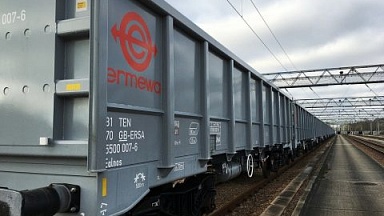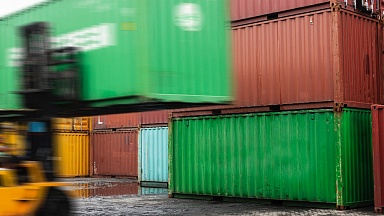Investments and projects
The Russian government has approved the third phase of the development of the Baikal-Amur Mainline (BAM) and Trans-Siberian Railway (TSR) until 2035. This project aims to increase the capacity of the eastern railway network and expand supply routes through Far Eastern ports. According to the plan, by 2030 the throughput capacity will reach 210 million tonnes, and by 2032 it will reach 270 million tonnes.
The European Union has allocated €6 million (82 billion soums) to Uzbekistan for agricultural reform. This grant will support the implementation of the country’s National Strategy for Food Security and Healthy Nutrition. The agreement between Uzbekistan and the EU envisages a total allocation of €20 million for the agricultural development strategy for 2020-2030. In addition to this assistance, Uzbekistan expects to receive additional grant funds this year and next as part of this initiative.
Russia will actively participate in the construction of the Trans-Afghan railway. The roads (1520 mm — Russian standard) are an integral part of the international transport corridor «Belarus-Russia-Kazakhstan-Uzbekistan-Afghanistan-Pakistan» (BRKUAP — BRKUAP). Russia is willing to join the consortium as a financial partner and assist in the development of a feasibility study for the project.
Economic policy and cooperation
Kazakhstan, Azerbaijan and Uzbekistan are planning to lay a cable along the bottom of the Caspian Sea in order to unite their energy systems. At the Tashkent International Investment Forum, a memorandum of cooperation was signed regarding the interconnection between the countries’ energy systems.
Kazakhstan also plans to build an oil pipeline along the bottom of the Caspian Sea, and KazMunaiGas National Company has formed a team of experts to analyze the situation and develop recommendations for the technical, commercial, and legal aspects of the project, in collaboration with international oil companies. However, it will also be necessary to coordinate with other coastal states, such as Russia, Turkmenistan, and Iran.
The US Senate has approved a ban on the import of Russian-enriched uranium until 2040, which accounts for almost 25% of the uranium used at American nuclear power plants, bringing in about $1 billion for Moscow each year.
Trends and forecasts
The Ministry of Energy of Kazakhstan, together with QazaqGaz, has formed a forecast gas balance until 2030. Crude gas production is expected to grow 1.5 times, from 60.4 billion cubic meters. m in 2024 to 90.7 billion cubic meters in 2030.
In order to eliminate gas shortages in the country, production at the Rozhkovskoye, Yuzhny Aksai and Alabai fields was launched in 2023. In the medium term, several more gas projects are expected to be launched — Urikhtau Tsentralny, Zapadnaya Prorva, and Kalamkas.
New projects will result in an increase in production of about 4 billion cubic meters by 2030.
The original is available in Russian
ЕАБР. 2024. «Мониторинг инфраструктуры.» Eabr.org. 2024. https://eabr.org/analytics/monitoring-infrastruktury/#tab2024.


